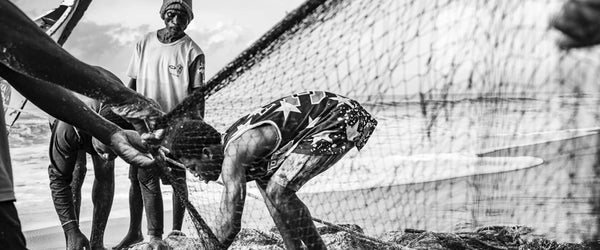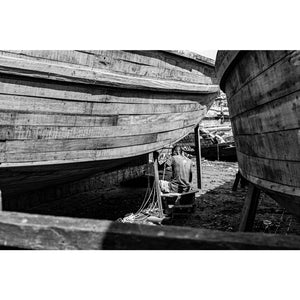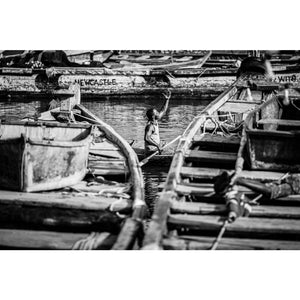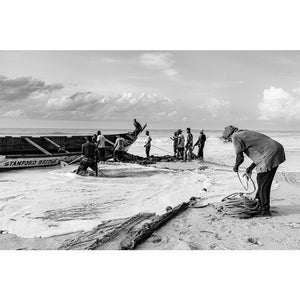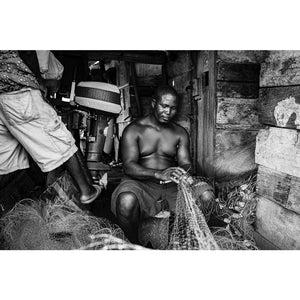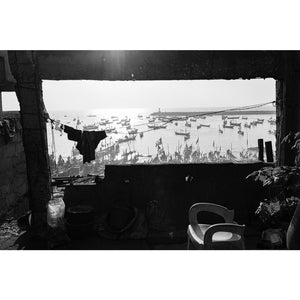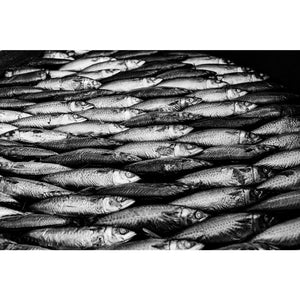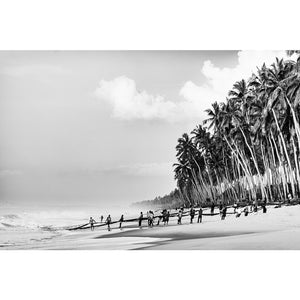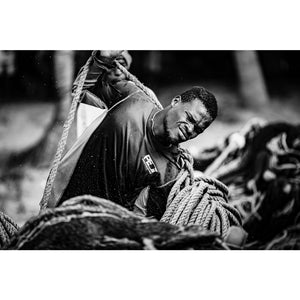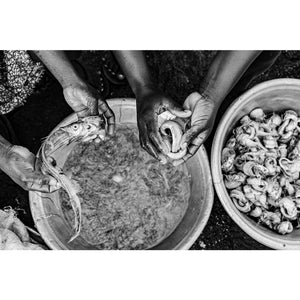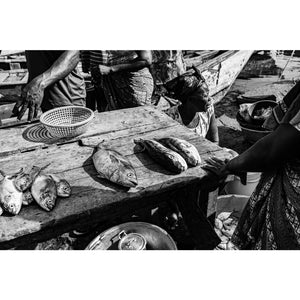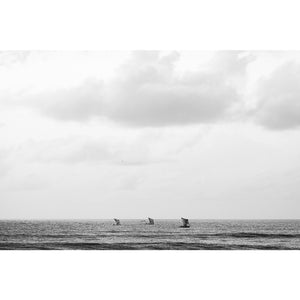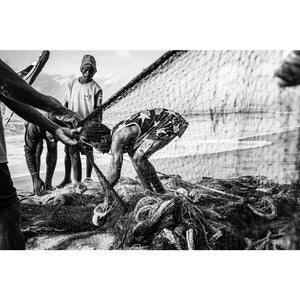18 products
The exploitation of the blue economy is an endemic collateral consequence of neo-colonialism. See all photos in Holes In My Nets Collection.
Discover Holes In My Nets Story
No where is it more present than the once abundant waters of Ghana. Today, Chinese industrial fishing vessels wage war on marine biodiversity, livelihoods, food security, and the indigenous traditions and spirituality of sovereign waters.

Situated in West Africa on the Gulf of Guinea, Ghana enjoys approximately 550 kilometers of coastline including seas and rivers creating a backdrop for a vibrant and profitable fishing industry. The industry consists of three main sectors, small scale (artisanal/canoe), semi-industrial (inshore) and industrial sub- sectors.
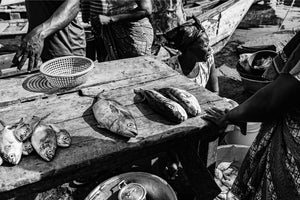
The total industry accounts for 20 percent of the country’s labour force, more than 2.5 million persons throughout the local supply chain with 50 percent participation from women. The sector benefits from both local consumption and exportation. The National Export Development Strategy predicts 1.1 billion in fish exports revenue by 2029.

Illegal, Unreported and Unregulated (IUU) fishing threatens Ghana’s fish stock and export reputation. IUU activities include, fishing without a license, fishing in a closed area, fishing with prohibited gear, fishing in excess of a quota, and fishing of prohibited species. Foreign industrial trawling, illegal net size, rampant saiko trading, and grossly irresponsible practices have exploited biodiversity. The exploitation attributes to Ghana’s reliance on importation; Ghana currently imports over $300 million worth of seafood annually to supply its consumption demand.
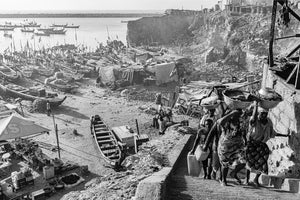
According to the recently published Empty Oceans, IUU between 2000 – 2016 resulted in a 37 percent reduction in catches with dramatic socio economic consequences. The catch reduction triggered the loss of over 10,500 jobs in the past few years with innumerable collateral loss to women who occupy and control post-harvest activities. Reckless and uncontrolled sourcing directly contributes to poverty levels, with women bearing the majority of the burden.
